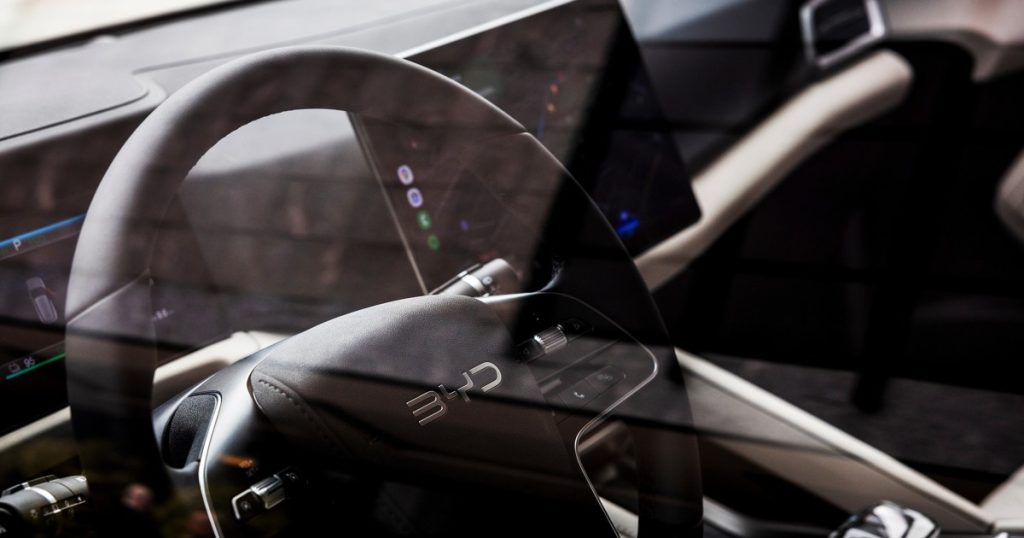The European Union has voted to adopt definitive tariffs on battery electric vehicles (BEVs) imported from China. The decision to impose higher tariffs on Chinese electric vehicle imports was initially announced in June, citing unfair subsidies and a potential threat to European producers. The tariffs were based on the levels of cooperation and information provided by individual companies as part of an investigation into EV production in China, which began last year. Provisional duties were implemented in July, and the European Commission revised its tariff plans in September based on feedback from interested parties.
China’s Ministry of Commerce has criticized the E.U.’s investigation, stating that it has predetermined conclusions and promotes unfair competition. Despite the imposition of tariffs, the E.U. has expressed a willingness to continue talks with China. The decision to impose tariffs on Chinese-made EVs followed months of debates and discussions among E.U. member countries. France supported the move, while Germany raised concerns about the impact on its carmakers. Hungarian Foreign Minister Peter Szijjarto even threatened to veto a proposal from the European Commission that suggested tariffs of up to 45%. Concerns about potential retaliation from China, including ongoing investigations into E.U. exports, have caused division among E.U. members.
The imposition of tariffs on Chinese electric vehicle imports reflects the E.U.’s efforts to protect its domestic industry and address what it perceives as unfair trade practices. The tariffs are intended to level the playing field for European electric vehicle producers and prevent harm to the industry. The E.U. has been engaging in discussions with China despite imposing tariffs, signaling a willingness to address concerns through dialogue. The decision to impose tariffs on Chinese-made EVs was a result of thorough investigations and deliberations within the E.U., with differing opinions among member countries contributing to the decision-making process.
The E.U.’s decision to adopt definitive tariffs on Chinese battery electric vehicles comes after a period of assessment and negotiation, highlighting the complexity of trade relations between the two economic powers. The decision reflects the E.U.’s commitment to fair trade practices and the protection of its industries. The varied opinions among E.U. member countries, with some supporting tariffs and others raising concerns, underscore the challenges of reaching consensus on trade policies. Despite potential tensions and concerns about retaliation, the E.U. remains open to continuing talks with China to address trade issues and promote fair competition in the electric vehicle market. Overall, the adoption of tariffs on Chinese-made EVs represents a significant step in shaping trade relations between the E.U. and China and protecting the interests of European producers in the electric vehicle industry.


